Burn Scar Z-Plasty Neck Release
A beautiful young woman entered the clinic on the third day with terrible burn scars from her chin and all the way down her neck and chest. Two years prior in a complete state of heart broken despair this woman poured kerosene on herself and lit it on fire, yet then decided to change her thoughts of suicide and was left with terrible scaring that prevented her from moving her head up and down or side to side. Upon examination, Dr. George Longstreth quickly recommended that surgery could be done to free up the skin to allow for more movement using a procedure known as Z-plasty.
Z-plasty is a plastic surgery technique that is used to improve the functional and cosmetic appearance of scars. It can elongate a contracted scar or rotate the scar tension line. The middle line of the Z-shaped incision is made along the line of greatest tension or contraction, and triangular flaps are raised on opposite sides of the two ends and then transposed. The length and angle of each flap must be precisely the same to avoid mismatched flaps that may be difficult to close.
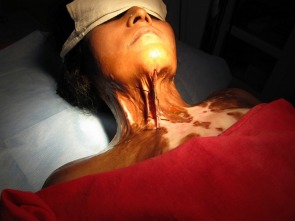
Here you can see that the scar tissue had formed a straight form of skin stretching from the chin to the chest.
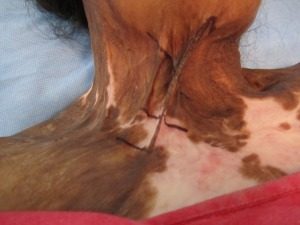
There were two lines of tight skin running up the neck line preventing her from moving her head up and down.
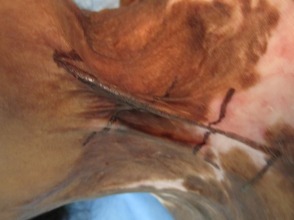
Using a magic marker Dr. George drew specific incision lines. Numerical data showing optimal angles and length relationships of Z-plasty were created in 1946.
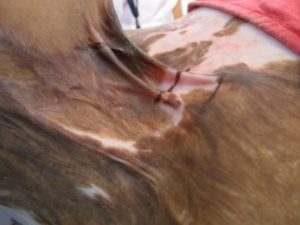
Since straight-line scars draw attention easily, multiple Z-plasties can break up the scar into smaller units, making the scar less noticeable and freeing up mobility.
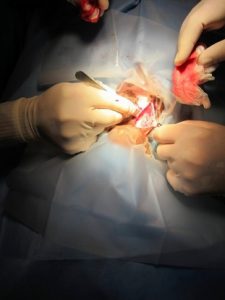
A straight incision was made directly down the length of the skin.
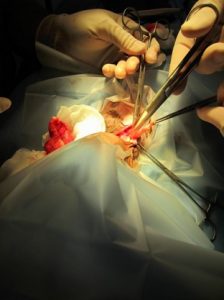
Several clamps are used to properly access and hold tissue while further incisions are made.
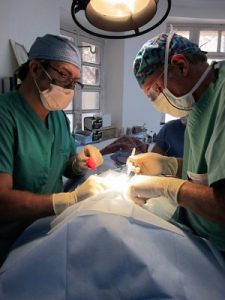
George uses a “Bovey” electrosurgical instrument which both cuts the skin and cauterizes blood vessels.
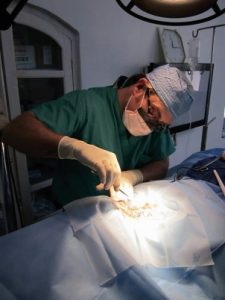
Joe Bardenheier uture’s the incisions closed.
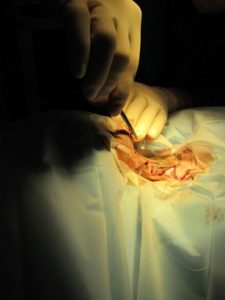
The Z-plasty pattern is very evident here.
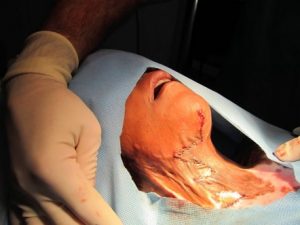
The tight skin from the chest to the chin has now be reformed creating a distinctive chin and neck line and allowing for free movement of the head.
